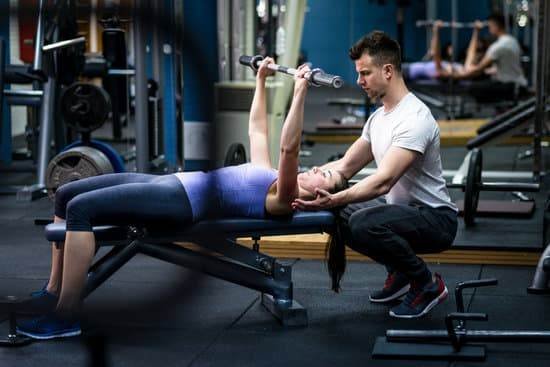Introduction
Working with a personal football trainer can provide you with many benefits. They are highly knowledgeable and specialize in teaching the fundamentals and techniques of football, helping you to reach your optimal performance and potential. They can work with all different levels of players, ranging from those who have not yet taken their first step onto the field to experienced athletes looking to fine tune existing skills.
A personal football trainer will create individualized training plans that are tailored to your specific needs, taking into account the current state of your physical condition, goals and objectives. With their knowledge and expertise, they can help you develop both technical and tactical skill sets necessary for playing at a higher level. On top of that, they can also identify any areas where improvement is needed; diagnose potential weaknesses; provide feedback on performance; as well as design custom drills/exercises to practice each technique as needed.
In addition to offering tailor-made goals and plans for success, a personal football trainer is also an excellent source of motivation. They will inspire you by providing encouragement and support while pushing you outside of your comfort zone in order to unlock your fullest potential on the field. As such, they will be an invaluable ally in helping you maximize your performance in football – whether it’s during a game or practice session – by providing tangible results from their personalized programs. Overall, working with a private trainer allows for talent development under experienced guidance, offering greater chances of reaching one’s highest level of play when competing on the field.
Types of Personal Football Trainers Available
There are many different types of personal football trainers available, each with their own specialty. Some specialize in training youth players, while others may focus on high-level athletes preparing for a professional career. Some trainers focus on teaching the fundamentals of the game such as passing, catching, and blocking. Others specialize in more advanced strategies such as football strategy, conditioning and play-calling. There are also physical fitness trainers that work to improve strength, agility, and endurance among players.
Other trainers offer a combination of skills development and specialized training. These trainers assess an individual’s needs and design a program tailored for each player to improve their overall skill level or unlock certain traits or abilities within them like speed and agility or field vision. They also provide guidance on nutrition, lifestyle modifications and recovery protocols depending on the player’s goals or needs.
Additionally, there are mental coaches that help students stay focused during competition while developing resilience when they experience setbacks or times of adversity. Mental coaching helps players set challenges for themselves that will motivate them reach their potential both on and off the field by enabling them to understand how to control their emotions and maximize performance during big games. Finally there are private tutors which teach players about the rules of the game so that they can better understand what is happening on the field at any given time in order to make informed decisions during gameplay.
Factors to Consider When Choosing a Personal Football Trainer
Before selecting a personal football trainer, there are a number of factors that need to be taken into consideration. Firstly, it is important to establish the experience and qualifications of the trainer. It is also advisable to look into how much playing or coaching experience they have – both professional and amateur – so as to determine whether they possess the necessary knowledge to teach the necessary skills. Secondly, transportation may be an issue, so be sure to inquire if there is any cost associated with travelling services and ask how far they are willing to travel for training sessions. Finally, budget should also factor into your decision when choosing a personal football trainer; compare rates from different professionals and don’t be afraid to negotiate. Be sure to also consider discounts that may be available through recommendations from friends or family members as this could save you time and money in the long run. It is also beneficial to look into the customer feedback from prior clients, which can give insight into the level of service provided by the personal football trainer.
What to Prepare Before Starting Training
Before embarking on any personal football training, whether it be for yourself or as a coach for a team, there are some preparations that must be made.
First and foremost, it is important to understand the rules and regulations of the game itself. As such, it is wise to familiarize yourself with the laws of the game set out by the International Football Association Board (IFAB). Knowing the rules and regulations will help you understand where boundaries should be set to ensure fairness and safety during your football sessions.
Additionally, one should also familiarize themselves with any local or national regulations in terms of health and safety standards which must be met. This could include preparing materials like first-aid kits in case of an injury during training or having a suitable play area that meets necessary safety requirements.
In addition, equipment should also be prepared before any training can take place. Depending on the age group being trained, this could include balls of various sizes, shooting targets, cones for passing drills and other items depending on what type of drills will be taking place.
Finally, warm-up exercises should also be contemplated prior to beginning any football session. Stretches both dynamic or static can help players prepare physically and mentally as they look to increase their overall performance levels during their session.
Setting up a Football Training Program
Creating a football training program requires an in-depth assessment of the individual athlete you are creating it for. This involves taking into account their goals, physical condition, positioning on the team and any other specific needs that may be applicable. You should also take into account the current fitness level and desired fitness outcomes in addition to any skills the athlete already possesses, such as ball handling, speed agility and passing. The program you create should include exercises tailored to improve each one of these abilities and components. Additionally, drills can be created specifically to target specialized skill sets such as passing, shooting or defending.
One important aspect that should not be overlooked is recovery and downtime – it’s just as important as any other component of the training program. Proper nutrition and rest play an integral part in maximising results from any workout program. The foods they eat should provide adequate energy while helping fuel their body’s recovery processes during rest periods. Finally, psychological training can also be incorporated if needed, focusing on goal setting and motivation techniques to help with developing desire, determination and concentration. Regular performance assessments can help keep track of progress towards pre-determined targets so that the athlete’s goals can be met or exceeded within a reasonable time frame.
Nutrition and Rest for Football Training
When preparing for football training, nutrition and rest are essential. Proper nutrition is key to minimizing fatigue on the field and maintaining optimal performance through a season. Eating nutrient-dense foods, such as fruits, vegetables, lean proteins, whole grains, and low-fat dairy will help provide your body with the energy and nutrients needed to fuel football training. It is important to also stay hydrated throughout the day by drinking plenty of water or electrolyte-enhanced fluids. Eating small meals or snacks every few hours can also help keep energy levels up while playing.
In addition to nutritious meals, getting sufficient rest between training sessions is important for recovery. Taking time to recover allows your muscles and other tissues to heal after physical activity and prevents mental fatigue in providing you the ability to focus throughout practice sessions. Sleep helps your body regenerate cells for a quicker recovery from muscle soreness due to football training. Moreover, if possible, taking naps prior to practice can increase alertness so you can give it your all during workouts. Finally, finding time in each day for activities that make you feel relaxed such as reading or listening to calming music can help with stress management which strengthens mental resilience when tackling challenging tasks of football training.
Goals and Progress Evaluation
Personnel football trainers play a vital role in helping athletes achieve their goals. They provide guidance and instruction on the necessary skills to become successful football players. As part of this, they evaluate their athlete’s progress and set goals for them to strive towards. In addition to helping each player reach their best performance, the trainer must also track their individual progress and strive to surpass any prior records set by them. Analysis should be done regularly by the trainer to best assess where an athlete is at relative to their past performance. This can involve reviewing stats from games as well as observing practice drills and skill tests. Regularly checking in with the team members is essential as it helps the trainer better identify areas which need improvement or further development. It also allows them to highlight their athletes’ strong suits and maximize each individual’s potential. Progress evaluation is key in order for personnel trainers to develop effective training programs tailored to each athlete’s needs and goals.
Motivational Tips for Success with a Football Personal Trainer
1.Set SMART Goals: When working with a personal football trainer, it is important to set concrete, measurable, and achievable goals for yourself. Establishing precise and realistic objectives will help both you and the trainer keep track of where you are in your progress. Keep in mind that although there are no shortcuts to success, having SMART goals ensures that you’ll reach the highest level of success possible.
2.Be Open About Your Limitations: Let your personal football trainer know what physical limitations you have or any fears you might have so they can best accommodate them. This allows the trainer to tailor their coaching style to exactly what works best for you as an individual athlete and helps create an environment where everyone feels comfortable!
3.Stay Committed: Just like with anything else in life, commitment is key when training with a football personal trainer. Make sure to give 100% during your sessions and follow the program created by the coach without fail or else risk falling behind on your schedule or not unlocking all of the potential benefits out of each session. Without your commitment and dedication, progress will be difficult to achieve!
4. Have Fun Along the Way: It’s important not only to stay focused on reaching your goals but also make sure to enjoy every step along the way! Working with a personal coach doesn’t just give you access to more directed instruction; it also immerses you into a team dynamic which can be equally (or more) motivating when trying improve as a player!
Conclusion
Ultimately, working with a personal football trainer can be an invaluable experience for both adults and children. It can not only help to drive performance on the field but can also build self-confidence and team spirit. With a personal football coach, athletes are given individual attention and tailored sessions to meet their skill level and surpass their goals. It’s the perfect way to practice, refine skills, and learn new techniques in order to improve overall abilities quickly. Not only that, but having accountability from a mentor outside of practices helps players stay focused on honing their skills and making the most out of each session. This consistent reinforcement can often lead to positive changes which will carry over during games. Therefore, if you’re serious about refining your football technique or excelling further as an athlete, consider getting yourself a personal football trainer for all your goals related to this great sport!

Passionate about providing useful information to anyone with an interest in the field of Personal Training, I strive to pass on to our readers quality information and to answer any questions about Personal Trainers, the work they do and how to become one.





